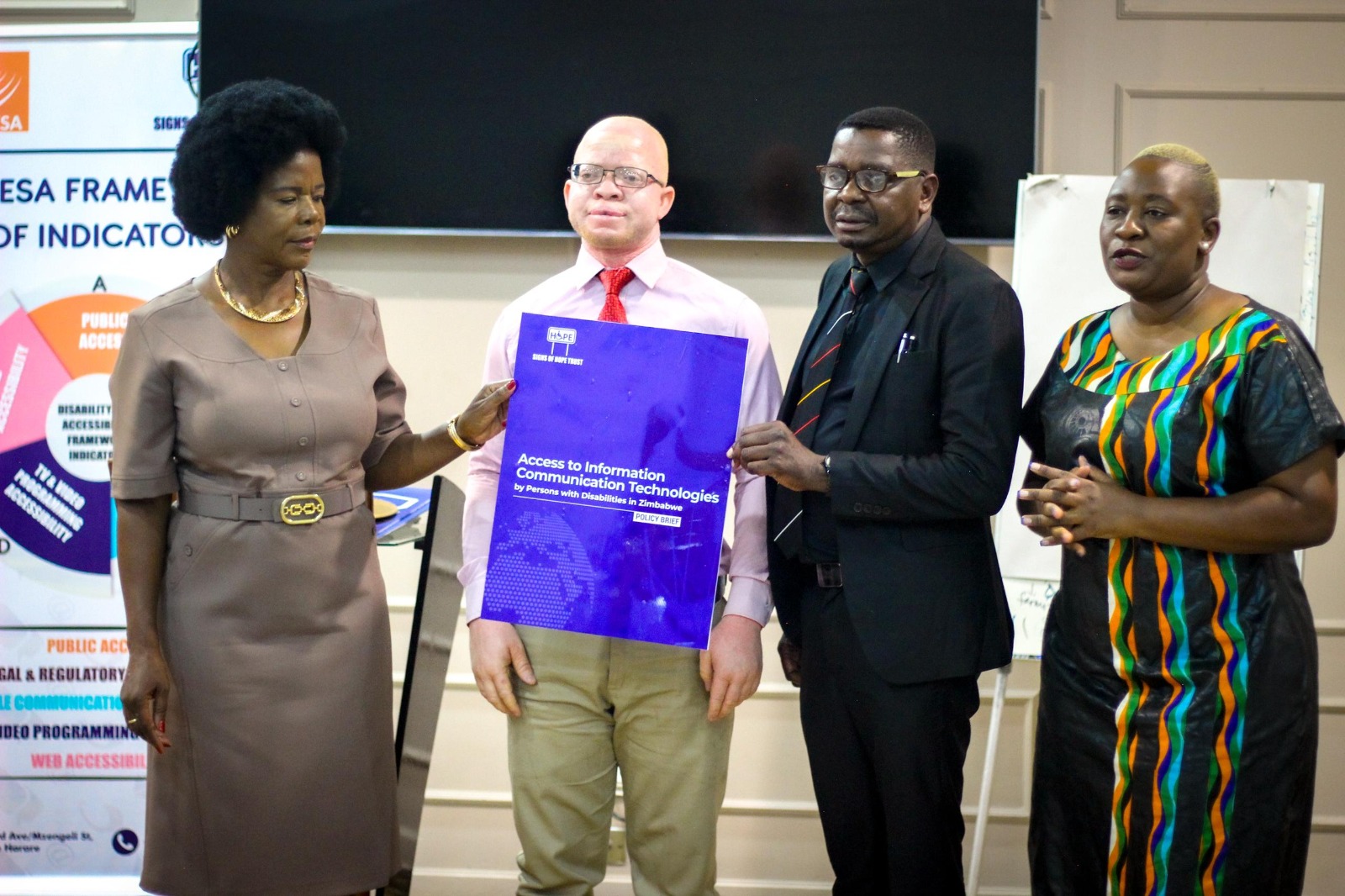|
Getting your Trinity Audio player ready...
|
Members of Parliament have proposed to amend the constitution to pave the way for a Disability Commission so that People with Disabilities (PWDs) issues in the country are adequately addressed.
This came out clearly during this year’s access to Information Communication Technology (ICTs) by People with Disabilities Indaba organised by Signs of Hope Trust held in Harare on Tuesday.
The indaba brought together legislators, Student Representative Council (SRC) members from universities such as Bindura University of Science Education (BUSE), University of Zimbabwe (UZ), and other stakeholders.
Honourable Daniel Mololeke, the Chairperson of the Parliamentary Portfolio Committee on Health and Member of the House of Assembly for Hwange Central Constituency noted that it was high time disability matters were regarded as human rights and not charity issues and that the establishment of a Disability Commission will ensure that disability issues were dealt with expeditiously in the country.
He said it also enables such a commission to have a stand-alone budget from the Treasury such as other independent commissions in the country.
Honourable Beatrice Nyamupinga, the Member of the House of Assembly for Goromonzi West, also echoed the same sentiments, saying the envisaged Disability Commission will make it easy to source financial and material resources from development partners apart from what they will be getting from central government.
“At the moment, we have disability affairs as a department in the Ministry of Public Service, Labour and Social Welfare. Disability is no longer a welfare issue and it’s high time as Parliament we up our game and create a Disability Commission,” said Hon Nyamupinga.
She said the current scenario where the disability affairs department was housed under a Government ministry creates a big brother mentality where another ministry will go and beg for resources from another ministry for use by the department.
Senator Annah Shiri, who represents PWDs in parliament, called upon legislators to work together in creating an inclusive digital landscape by harnessing the power of technology to bridge the existing gaps that traditionally hindered persons with disabilities from participating in various activities in society.
“Access to ICT, promoting inclusive education for persons with disabilities, assistive devices, and communication devices, empower even students with disabilities to access educational resources and participate actively in learning processes,” she said.
She, however, bemoaned how websites were not user-friendly, particularly to people with disabilities although their mandate was to disseminate information.
Senator Shiri said access to ICTs by people with disabilities was a vital step towards building an inclusive society.
Also speaking at the same event, Zimbabwe Media Commission (ZMC) executive secretary, Mr. Godwin Phiri, who was represented by his organisation’s public information compliance manager, Mr. Brian Tomo, said access to information was a fundamental human right enshrined in Section 62 of the Zimbabwe Constitution, adding that the law states that every citizen or permanent resident of Zimbabwe including juristic persons and the media have the right of access to any information held by any person including the State required for exercising or protecting a right.
He said the Freedom of Information Act plays a crucial role in promoting transparency, accountability, and good governance by empowering citizens to access information held by public entities.
“However, despite the significance of this legislation, there remains a lack of awareness and understanding among the general populace regarding their rights under the Act. This forum aims to address such an anomaly, as there is a need for a clearer understanding of the act by the populace,” said Mr. Phiri.
He also made it clear that the Constitution of Zimbabwe obligates the State to take suitable measures within its available resources, to ensure that persons with disabilities realise their full potential; to enable them to become self-reliant; live with their families and participate in social and creative activities.
“As such, enabling legislation such as FOIA is imperative to make sure that persons with disabilities can access information. While ICTs play a crucial role as they provide readily accessible information that entities would have posted on their sites for the benefit of everyone”.
“We also worry about the inaccessibility of the websites, which I believe should come to the agenda of this forum,” said Mr. Phiri.






